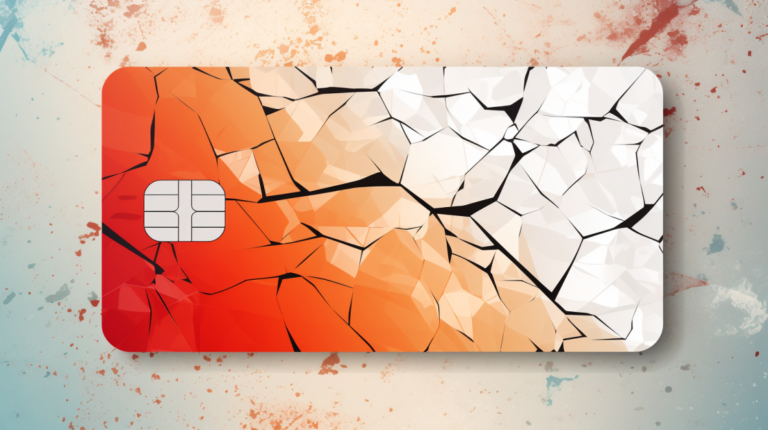Student Loans and Their Impact on Credit

Are student loans causing furrows in your brow? Having once walked a mile in those shoes myself, I fully understand that grappling with this financial puzzle can leave you feeling pretty bamboozled.
Fun fact: Did you know even one minor slip up on your student loan repayments could sway your credit score fairly significantly? This blog plans to shine some serious light on the deep impacts – both good and bad – that student loans can have on your credit.
We’ll delve into forbearance options along with some handy tips for taming those troublesome loans. Buckle up; we’re venturing into a realm of revelation!
Key Takeaways
- Student loans can lift or lower your credit score. Late loan payments push down scores.
- Federal student loans mostly don’t need a hard credit check. But some private ones do.
- Loan forgiveness and forbearance change how much you owe but may not hurt your credit score right away.
- Missing payments on student loans drop your credit rating for seven years!
Understanding Student Loans
Student loans are money you borrow to help pay for your education. You must pay this money back over time, plus interest. There are two main types: federal student loans and private student loans.
Federal ones come from the government. They have set interest rates and terms that can be better than private ones. Private student loans come from places like banks or schools. They may not offer as good terms as federal ones.
You can spend the loan money on things like tuition, books, room and board, even travel to school! You will have a schedule to pay back your loan once you finish school or drop below half-time study hours.
It’s important to know all about repayment before you take out any student loan.
How Student Loans Affect Your Credit Score

When you take out a student loan, it can have a solid impact on your credit score in several ways, including by influencing your payment history, inquiries made into your credit health and overall length of credit.
Payment History
Paying my student loans on time keeps my credit score high. Each payment I make goes into a record called a payment history. This is a big part of how they figure out my credit score.
They see when I pay and if I pay the right amount.
If I don’t do that, it will hurt me. Even one missed payment pushes down my credit score. It gets worse with late payments too because they can stay in my history for seven years!
Inquiries
Every time you apply for credit, a hard inquiry is done. This can lower your credit score a bit. But don’t worry too much! Federal student loans mostly do not need this hard inquiry.
Only some types of private student loans will need it. So, keep track of how many times you apply for new credit. Too many hard inquiries can drop your scores faster than you’d think! Be smart with credit and keep those scores high!
Length of Credit
Having student loans can stretch the length of your credit. The age of your accounts counts to your credit score. So, longer history equals better scores. Credit scores look at how old all your accounts are and use an average age.
Student loans often add years to this total. This helps keep your common account age high. But don’t get it wrong – late or missed payments hurt you big time! They stick on a credit report for up to seven years straight!
Positive and Negative Impacts of Student Loans on Credit

Student loans can play a significant role in your credit health, acting as a double-edged sword that brings both potential benefits and drawbacks to your financial future. Tune into the next section to delve deeper into this intriguing aspect of student loans!
Positive Impacts
I’ve seen some good things happen when handling student loans right. These include:
- A student loan can improve your credit score. It can show that you are able to manage and pay back money you borrow.
- Making on – time payments boosts your payment history. It shows lenders that you handle debts well.
- Student loans help lengthen your credit history as they stay on your credit report for a long time.
- If the total loan balance goes down, this can also raise your credit score.
- Want to add variety to your credit mix? Having both student loans and other types of loans helps.
- The Fresh Start program changes defaulted loan status for the better, which is good for those with federal student loans.
Negative Impacts
Let’s take a look at some ways student loans can hurt your credit. First, missing a payment can lower your score. Second, if you’re late with payments, they’ll stay on your report for up to seven years. This isn’t good at all! Next is when you apply for more credit. It can make your score go down as well. Then there’s debt relief. If it causes your loan account to shut, this too can sink your score for a bit. Lastly, each scoring model weights categories differently and this can change the effects of student loans on scores. These negative impacts show why it’s important to handle student loans with care.
How Loan Forbearance and Forgiveness Impact Your Credit

In the world of student loans, forbearance and forgiveness can play game-changing roles on your credit but not always in ways you’d expect – there’s more to it that needs exploring.
Curious? Read on!
Student Loan Forbearance
Student loan forbearance lets you pause your monthly payments. During this time, though, interest inkles up on your loans. This can make the total debt higher in the end. Loan forbearance doesn’t hurt your credit score by itself.
But be careful! If you use it too often, lenders may see this as a sign that you have trouble with money. They might not want to give you a loan later on for things like homes or cars.
Student Loan Forgiveness
Student loan forgiveness can help a lot. It is when you do not have to pay back some or all of your student debt. Not everyone gets it though, only people with certain jobs like teachers or nurses might get it after lots of years working in that job.
For other folks, there are programs like income-driven payment plans that could lead to forgiveness one day if the loans aren’t paid in full yet. Be aware! When loans get forgiven, they close on credit reports which may cause a short dip in credit scores as per facts from 2022 changes to federal student loan rules.
The Implications of Defaulting on Student Loans
Not paying your student loans can hurt you. Your credit score may drop if you default on student loans. Also, a one-time missed payment can twist your credit score the wrong way. Late payments stick like glue on your credit report for seven long years.
This isn’t all that happens if you turn away from paying these dues. Signing up for new lines of money like auto or small business loans gets tough when in default because it adds a hard inquiry to your record and lowers your FICO Score further more.
However, federal student programs spare this bother by not needing any hard inquiries.
There is good news though! We have the Fresh Start program that’s made by the U.S Department of Education which helps lift up low credit scores for those who had fallen behind with their loan repayments before but now are keeping steady with their payments again.
Can Student Loans Increase the Risk of Identity Theft?

Student loans can indeed increase the risk of identity theft. With personal information being shared during the loan application process, scammers can exploit vulnerabilities. Being vigilant in protecting your credit from identity theft is crucial. Monitor your credit reports, use secure websites, and be cautious when sharing sensitive information online to safeguard against potential identity theft risks associated with student loans.
How to Manage Student Loans Effectively
Taking charge of your student loans is key to a bright financial future. Here are some simple steps:
- Pay on time: Make sure you never miss a payment. This helps keep your credit score healthy.
- Monitor your loan: Regularly check on your student loans and credit reports. It’s important for understanding how it affects your credit health.
- Plan for a dip in score: If debt relief causes your student loan account to close, be ready for a short fall in your credit score.
- Seek help if needed: Look into federal student loan programs like debt relief or income-driven repayment plans. These can make the burden of paying off loans easier.
- Keep track: Even one missed payment can lower your credit score, so stay alert about due dates!
- Build history: Having an ongoing loan helps you build up good credit history as long as you continue making payments.
- Look at refinancing options: Sometimes, these can help lower your monthly payments or offer other benefits.
Conclusion
That’s all about student loans and their impact on your credit. If you handle them well, they can help your credit score grow. But if not, they might bring down your score. The best way is to watch out for your loans and keep track of how you pay them back!
FAQs

1. What are student loans and how do they affect credit scores?
Student loans are a kind of loan given for education. On-time monthly payments can help grow your credit score but missed or late payments damage it.
2. What is the difference between federal student loan programs and private student loans?
Federal student loan programs often have lower interest rates and more payback options than private ones, making them easier to handle in terms of debt relief.
3. How does student loan default impact my credit health?
If you don’t meet payback schedules or apply for aid like an income-driven repayment plan, you may face defaulted loan status which hurts your credit health badly.
4. Do all financial decisions involving my Student Loans appear on my Credit Report?
Yes, both good practices – such as consistent on-time repayments- and bad outcomes like missed payments become part of your Credit History.
5.What will happen if I miss a payment on my installment loan for school fees?
Missing any payment or not following the school fee payback rules could dent your credit history, causing harm to future financial services access.
6.Is there any way to improve my Credit Scores despite having Student Loan Debt?
Even with Student Aid debt, maintaining other elements that define a healthy portfolio -like not doing frequent hard inquiries or wisely managing other types of borrowings- helps keep positive Creditworthiness.






